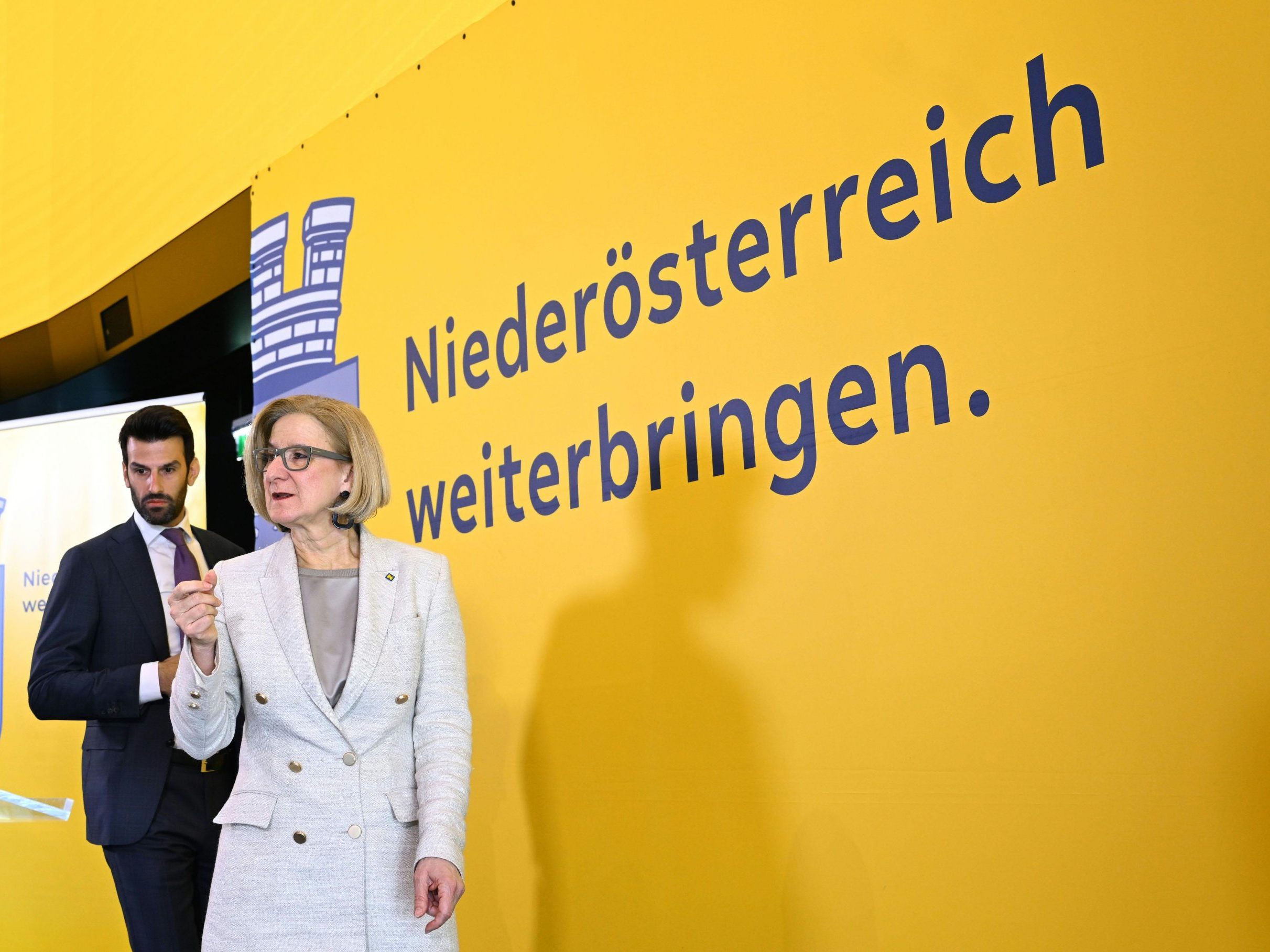NÖ Confirms "Zero Tolerance" Strategy for Those Unwilling to Integrate

During a press conference in Tulln, the timeline for measures against radical Islam was outlined. In light of the recession, the state will increase economic stimuli. Three points are intended to make the state administration more efficient.
"We Must Detect, Dismantle, and Destroy These Networks"
With the knife attack in Villach and the foiled attack at Vienna's Westbahnhof, the recently presented action plan against radical Islam has gained even more urgency, said Mikl-Leitner. Landbauer expressed similar sentiments. "We must do everything we can to dry up the Islamist swamps in our country," declared the governor. Lower Austria is "the first and so far only federal state to take up the fight against this dangerous development, and in a holistic manner: from kindergarten through school to mosques, clubs, and organizations," emphasized the deputy governor: "We must detect, dismantle, and destroy these networks."
At the beginning of March, the introduction of a state security council will be decided by the state government, announced Mikl-Leitner. The body is to "immediately" begin its work thereafter. Before the summer, the legislative changes for schools and kindergartens are to be initiated by the state parliament so that they become effective this September and "we can put uncooperative parents in their place." For example, in kindergarten, a fine of up to 2,500 euros could be imposed if a mandatory parent meeting is refused. The federal government is responsible for the school sector. Landbauer advocated for penalties for parents who, for instance, do not want to speak with a female teacher, "so they see that we mean business."
The most complex matter is the observatory, explained Mikl-Leitner. A clear division of tasks with federal institutions is needed here to avoid duplication. This requires coordination with a new federal government. "Zero tolerance and strict measures against integration refusers are more necessary than ever," emphasized the governor. The announced burqa ban in the state service should also be "implemented quickly."
"We put the normal before the abnormal," emphasized Landbauer. "We rely on blue-yellow instead of rainbow politics." With the black-blue working agreement of 2023, the "path of reason" has been taken: "We represent a socio-political counterbalance in Lower Austria to a shrill, highly ideologized minority that often tries to harness politics in other countries," said the deputy governor. He cited the gender decree as an example. "We put our own population at the center and put a stop to those who do not mean well with Lower Austria." Consistent action and a "Zero Tolerance" strategy are called for, emphasized Landbauer.
Announcement from Mikl-Leitner
In view of the weakening economy, the state of Lower Austria will significantly increase economic stimuli, announced Mikl-Leitner. In 2024, the state triggered 3.4 billion euros in investments, with 4.2 billion euros planned for this year and 2026 - for example, through the expansion of childcare, housing, or road construction. The governor described the construction of the S8 and S1 as a "must," and here the future federal government is called upon.
An "determined economic catch-up race" is needed, explained the deputy governor. He appealed to a new federal government to "get going" here. A key factor is investments in transport, said Landbauer. The economically relevant construction, maintenance, and operational budget in road construction in Lower Austria amounts to 221.3 million euros this year, with 219.1 million euros planned for 2026, explained Landbauer, who is responsible for transport in the state government. As part of a railway offensive, more than 600 million euros will be invested together with the ÖBB.
In the required reduction of bureaucracy, the state wants to "set a good example," said Mikl-Leitner. As part of an ongoing task review, the processes have been examined in detail according to the ÖVP politician, resulting in a "three-point plan" for more efficiency in state administration.
The first point concerns the deployment of staff and the bundling of competencies, so that official experts will in the future be centrally coordinated across the state. Secondly, procedures are to be simplified and "excessive requirements" eliminated. In the future, businesses will have a legal contact person available to coordinate the entire approval process. Thirdly, the online offering for negotiations, construction consultation days, and other official appointments is to be further expanded to reduce travel and business trips. Overall, according to Landbauer, more than 180 proposals have been developed by employees to save within the structure itself on the way to budget consolidation and to achieve efficiency improvements.
Work Program in Lower Austria: "Right on Schedule"
With the ÖVP-FPÖ work program, they are "right on schedule," Mikl-Leitner took stock on the occasion of the fifth government retreat in the current legislative period. According to the information, 45 percent of the agreed points have already been completed, more than 40 percent are in implementation, and 15 percent are being prepared. Right at the start of the collaboration, a Corona fund was presented. Applications can be submitted until the end of February this year, with payouts running until September. The fund is endowed with 31.3 million euros. By mid-January 2025, just over four million had been paid out. The remaining sum will flow into the state budget, said Landbauer upon request.
The NEOS immediately criticized the government's work and saw a "continuation of stagnation." "ÖVP and FPÖ have proven that they have neither visions nor solutions for the challenges in the state," said state party chairwoman Indra Collini in a statement. Ahead of the state parliament session on Thursday, it was said: "The scope of the agenda has now reached an absolute low. This is a disgrace and shows that ÖVP and FPÖ lack any ideas for the future."
(APA/Red)
This article has been automatically translated, read the original article here.





